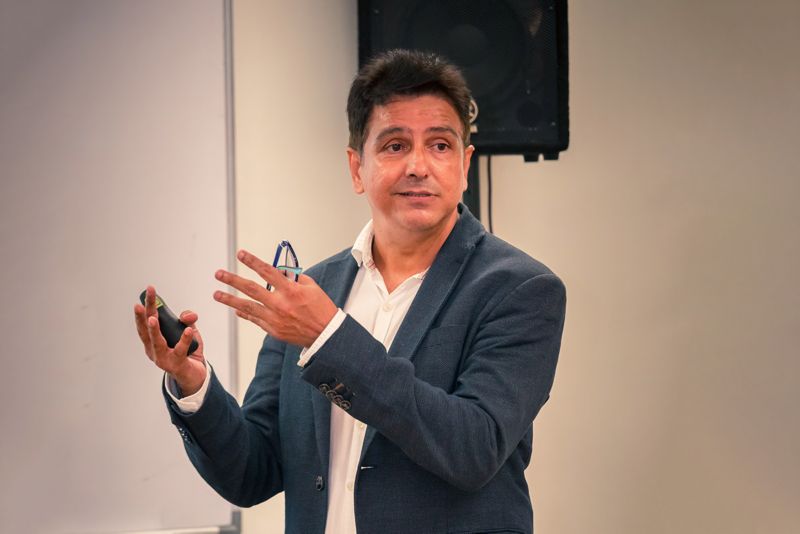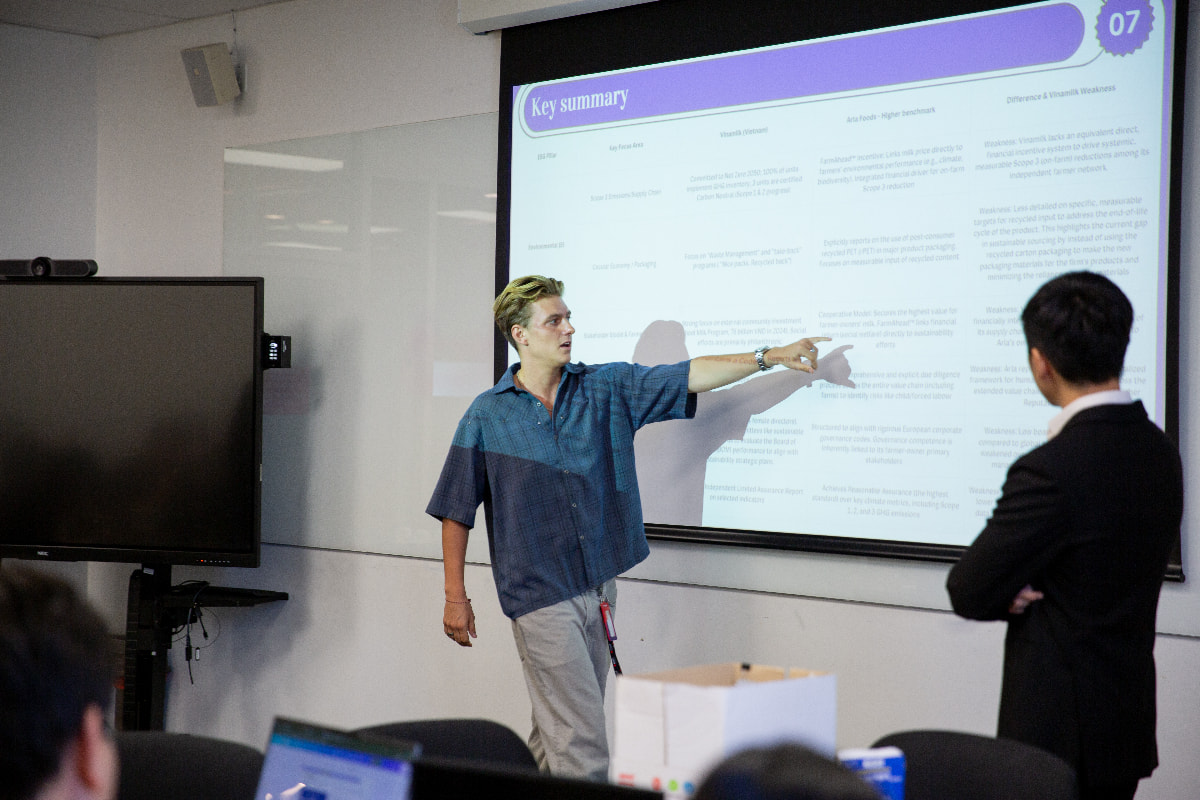Dr Sandhu introduces 5 key frameworks that help students analyse the challenges to creating a business strategy. These include PESTLE (Political, Economic, Social, Technological, Legal and Environmental factors that assess the opportunities and risks of an organisation’s macro environment) and Porter’s Five Forces, (which is used to identify and analyse five competitive forces that shape every industry and help determine an industry's weaknesses and strengths). The VRIO framework (Valuable, Rare, Inimitable, Organized) is also discussed to show how an organisation can conduct internal analysis.
There are a number of high-level guest speakers who have joined in Dr Sandhu’s classes, helping to give students fresh insights into how strategy can be effectively applied within an organisation. Recently, Safarian Gricha came and gave a talk on the cacao trade. He is the founder of CACAO-TRACE and the co-founder of the Sustainable Cacao Institute. Dr Ryu Trento also visited to give examples from his wealth of experience across numerous industries. Dr Trento currently is the Managing Director for a 3rd generation Japanese private family Group enterprise that operates in 40 countries and has VC/PE Fund investments in Agri/Agri-Tech, F&B, Wellness, Consumer/Retail, Renewable Energy, Real Estate and Technology, to name a few.
One of the reasons why strategy is so important is due to the fact that, as Dr Sandhu notes, “we are in a rapid digital and technological revolution, that is creating disruption across multiple industries. Firms that are slow in integrating technology will remain behind. We need not look any further than automation and robotics, virtual augmented reality or driverless cars in the automotive industry.” Dr Sandhu continues, “sustainability issues will also become extremely important in an organisation’s strategy. Global warming and a shortage of resources, including food, are going to factor in heavily on how we all can move forward. Lastly, strategies of today lean towards a ‘red ocean’ policy, wherein companies are solely focused on beating their competition. Yet this strategy is not sustainable, especially to smaller firms who do not have the resources to compete. Unless a firm is a large conglomerate, they need to begin thinking of a ‘blue ocean’ strategy to remain relevant, which means forgetting competition and instead creating something new. Innovation should take precedence, alongside creating new market spaces.”
Would you like to learn how to create value in a different way? Check out the different postgraduate programs on offer at RMIT Vietnam!





